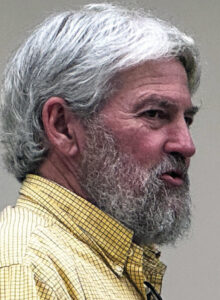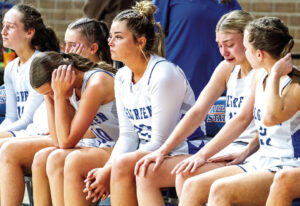Supreme Court committee wants contact between judges, media
By By Suzanne Monk / managing editor
April 27, 2002
Mississippi Supreme Court Justice James Graves says he thinks the media can help educate people about how courts work and increase their trust in the judicial system.
Graves spoke Friday at a lunch meeting of the Lauderdale County Bar Association.
Graves said journalists and judges need to understand each other's pressures and limitations.
People would rather get their information straight from a judge, Graves said, but judges are not allowed to discuss the specifics of the cases before them. Meanwhile, he said, reporters still have to file their stories and lack of information or understanding can result in inaccurate reporting.
Graves said finding ways to bridge this gap is a primary goal behind a series of meetings Supreme Court justices and lower court judges are holding with newspaper, television and radio representatives all over the state.
The first meeting of the "Courts and the Media" committee was held in Jackson, and Meridian will be included later in the tour.
Other media issues
Graves is chairman of the Courts and the Media Committee. He said it is widely referred to as the Cameras in the Courtroom Committee, but that description covers only a small part of the discussion.
Mississippi is in a minority of states that do not allow cameras in courtrooms in some form.
He is not, however, opposed. In fact, he said knowing cameras are recording trials might "make everyone a little better."
Graves did say judges would have to be granted a lot of discretion to preserve the traditional convention of jury anonymity and, in some cases, witness anonymity. Chancery Courts, which handle divorce and child custody disputes, could need special attention.
He dismisses the idea that cameras would turn courtrooms into "circuses" and encourage lawyers to "perform."
Electronic courtrooms
Graves also serves on a Supreme Court committee looking into electronic courtrooms and ways to file motions, briefs and rulings over the Internet.
Among the advantages of such a system are: 1) less time hand-delivering court papers, mailing copies to interested parties and posting filings into computer data bases; and 2) elimination of storage problems caused by bulky paper documents.
As a circuit judge in Hinds County, Graves was the first person in Mississippi to launch an electronic courtroom, and he said overcoming compatibility problems among different word processing programs is key to expanding on the idea.
Graves' reputation for computer savvy takes him by surprise.
The Mississippi Supreme Court has been outfitted with new computers, and is donating its old ones to schools. Interested teachers can call (601) 354-7452 for more information.







